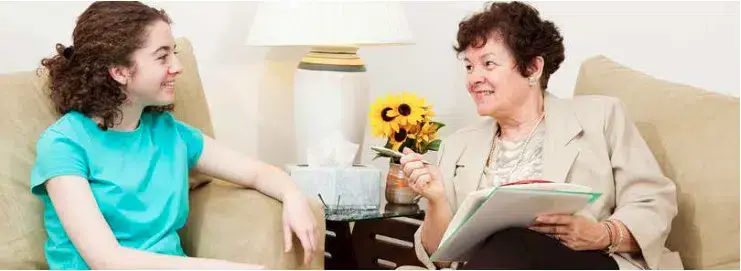
Six Denver area public schools have begun to provide access to drug treatment for students through School-Based Health Centers developed from a partnership with Denver Health. Through the program, which is intended to increase the number of teens who access addiction treatment, students can participate in treatment during school hours so that they do not miss their classes and parents do not need to miss work for them to get treatment.
The program also provides physical and mental health treatment services so that underlying issues that may be influencing substance abuse are also addressed. Capacity for the program at each school is 35 students, and there is usually a long waiting list. The average age of students who seek treatment is 15, but the program has treated kids as young as 11.
While many of the students come forward to seek treatment voluntarily, school staff can also help to identify students who may need help and refer them to the program when they might not otherwise seek treatment.

Benefits of School-Based Treatment
The schools that have treatment programs report that the students who participate were typically missing a lot of school days and getting suspended frequently before entering treatment and that participation in the program improves school performance and attendance dramatically.
This Season, Give Yourself the Gift of a Fresh Start.
Whether you are struggling with addiction, mental health or both, our expert team is here to guide you every step of the way. Don’t wait— reach out today to take the first step toward taking control of your life.
One counselor who administers the program, Amanda Ingram, said that students averaging 17 suspensions a year dropped down to just one suspension in their first year of participation in addiction treatment. Ingram uses a therapy dog as part of treatment and says it helps students be more comfortable if they can pet or talk to the dog while talking to her.
“Students thought the dog was comforting, like hanging out in a friend’s living room, not therapy,” she said. “It’s more experiential and less talk therapy, plus, they focus on the dog half of the time.”
Ingram estimated that about 65 percent of students became sober through the school-based treatment. Most of them, she said, started using drugs recreationally around age 11 and gradually became more dependent as they got older and developed a tolerance.
Most of the students report using marijuana, although some say they are using alcohol or opiates. Across the six schools, 500 students were helped last year, which made a big impact on the school environment and the community. The treatment is free for students and is funded by Denver Health, so even those who cannot afford other treatment can be helped.
If your loved one is experiencing problems at school or other problems related to using drugs or alcohol and cannot get help through a program like the one described above, another option for Colorado drug rehab is Recovery Village at Palmer Lake. Options for inpatient and outpatient treatment are tailored to the needs of each person so that recovery is possible. Learn about admissions to Recovery Village and how it might be able to help you or your loved one break free from addiction.







